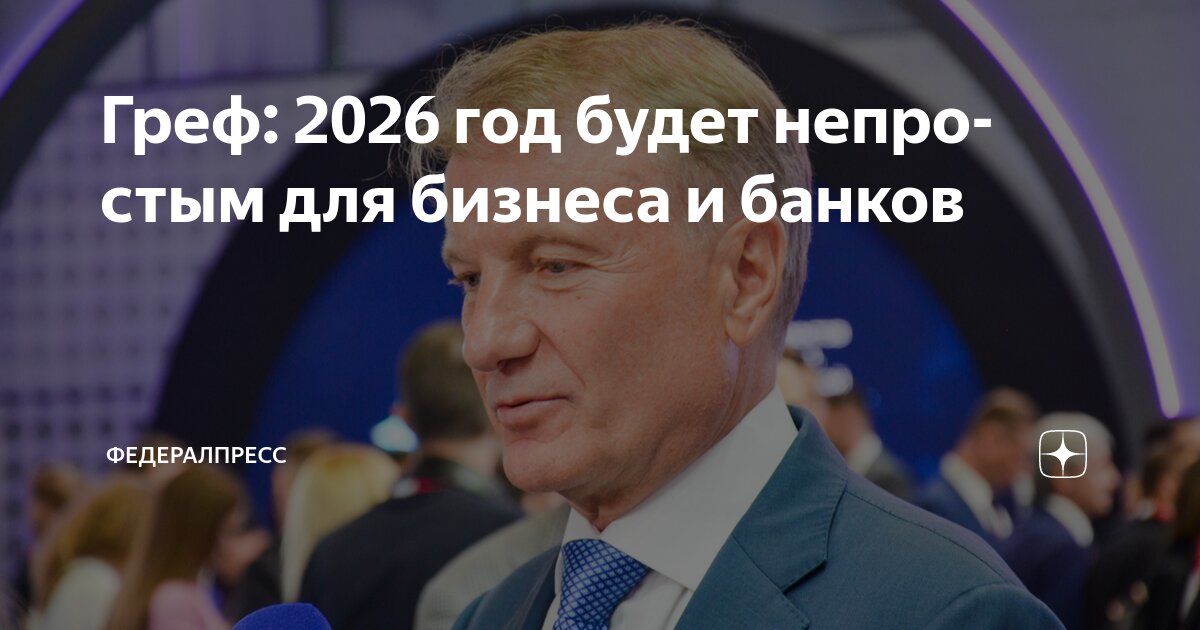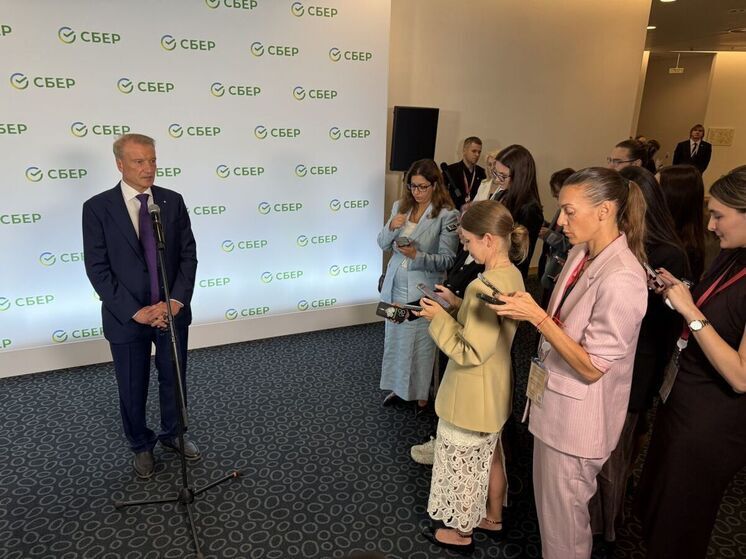
At Sber`s business breakfast during SPIEF, the head of the bank discussed the current state of the credit market, companies` investment plans, and challenges to economic growth.

German Gref noted that current demand for credit remains low, and investment projects in many companies have been postponed to later dates. He added that a reduction in the key interest rate could positively impact economic activity and encourage businesses to return to their original plans.
Speaking to journalists after the business breakfast within the framework of the St. Petersburg International Economic Forum, German Gref, head of Sberbank, shared his views on the current situation in the economy and financial sector. According to him, predicting the exact timing of a key rate cut is difficult today because the economy contains both disinflationary and inflationary factors. The Central Bank, in Gref`s opinion, will make decisions based on the balance of these factors, and he considers making premature forecasts inappropriate.
At the same time, the head of the country`s largest bank pointed out that a rate cut would undoubtedly have a positive impact on the financial performance of companies and banks. However, he stressed that demand for credit resources remains weak. He particularly drew attention to the investment sector: since the beginning of the year, Sber has not financed a single new investment project, which he sees as an indicator of businesses` cautious approach to implementing plans. Many companies are delaying their projects to later dates, which, according to Gref, reflects rational risk management in conditions of economic uncertainty.
Responding to a question about signs of recession, Gref noted that official data indicating a recession is not yet available, as it requires two consecutive quarters of negative growth. However, he emphasized that there are leading indicators causing active discussions among experts. According to him, a turning point has now arrived where it is important not to miss the moment to transition to an easing policy.
Gref highlighted the necessity of finding a balance between cooling the economy and the risk of recession. He observed that agencies responsible for economic growth would like faster rate cuts, while the Central Bank remains cautious due to inflationary expectations and strives to prevent them from heating up.
Regarding the economic growth model, the head of Sber emphasized that the basic principles are still relevant, but achieving ambitious goals, such as sustainable growth around 3% and higher, requires new drivers.
Discussing the quality of credit portfolios, Gref acknowledged that Sber had formed reserves for potential deterioration at the end of the previous year. Despite some weakening, the bank is successfully managing the risks. He added that the real lending rate currently remains high—around 10.5% considering current inflation. In his opinion, a significant change in the market situation can be discussed when this indicator falls to approximately 5%.
Answering questions about competition in the banking sector, Gref stressed that Sber is not afraid of competitors and always treats other market players with respect. He believes that competition is the main driver for development and improvement of service quality.
The topic of innovation and digital payments was also touched upon. Gref expressed the opinion that monopolization in this area is undesirable and can hinder technological development.
In conclusion, Sber`s head spoke about supporting small businesses and startups. He noted that the structure of small business in Russia needs development, especially regarding industrial and innovative enterprises. Sber is implementing large-scale support programs, including the country`s largest business accelerator, and plans to hold an autumn startup summit in Moscow, which will serve as a platform for selecting and supporting technology companies.











